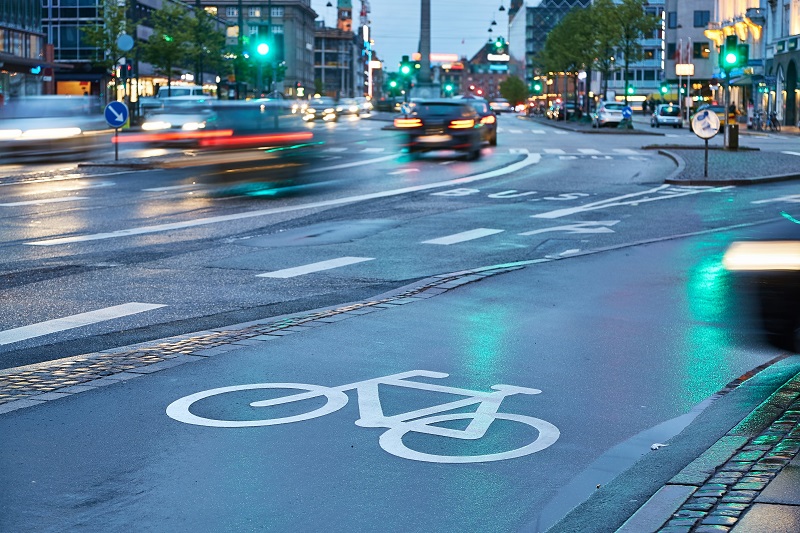Cities are reducing the space available for cars, and citizens' initiatives want to abolish the car altogether in metropolises. Is the heyday of the car over? A few thoughts on this from //next columnist Don Dahlmann.

The car has been the king of the road for almost 100 years. Within a few years, it displaced the traditional horse-drawn carts and carriages. But pedestrians also had to adapt: Their place in the cities was curtailed and rededicated in favour of the car. This did not always happen without resistance. For example, angry citizens in some US cities wanted to ban cars in their towns. And in Germany, too, there were considerable reservations about increasing motorisation at the beginning of the last millennium.
But over the past 70 years, there has been no doubt that the car is the most important means of transport. Entire cities were rebuilt to make room for the car. The idea of the car-friendly city was based on the assumption that all you had to do was make enough space for the car - and life would be much better. The famous architect Le Corbusier developed the vision of vertical cities in which high-rise buildings were surrounded only by wide streets. There was no room for pedestrians. And why should there be? In Le Corbusier's world, everyone had a car.
The underlying idea that everyone should own at least one car has, however, led to the well-known problems. There are simply too many cars in our cities. The annual statistics on the average time each car driver spends in traffic jams clearly prove this: in Munich, one spends 87 hours in a traffic jam, reports the traffic data provider Inrix. In Berlin it's 66 hours, and in Cologne it's still 41 hours.
So there are plenty of reasons to reduce the number of cars in cities. But some citizens' initiatives want to take an even more radical approach. In the capital, for example, there is the initiative "Berlin Autofrei" (Berlin Car Free), which wants to abolish all private car traffic in the city centre. Citizens are to be allowed to travel by car in Berlin only once a month.
If you think it's just a few radical car haters, you should look to Paris. There, cars are not banned, but Mayor Anne Hidalgo has made it clear that she wants most cars out of the city. Her administration plans to transform the metropolis into a "15-minute city". No matter where you live in the city, you should be able to do all your important errands in 15 minutes by bike or public transport. The famous six-lane Champs-Élysées, including the roundabout around the Arc de Triomphe, is to become a park.
So is the end of the car sealed after more than 100 years? It won't happen quite so quickly. So far, these are all just ideas, and the advocates of car traffic are holding out against them. After all, how are city centres supposed to be populated if no one can drive in anymore? How are shops and restaurants supposed to exist if no one can drive by spontaneously anymore?
Of course, alternatives can be thought of. Public transport can certainly be expanded, car sharing can provide good services - and in the future there may even be autonomous taxis that drive you through the city on demand for little money.
But the problem is not in the city, it's in front of it: the suburbs and suburbs of the metropolises are densely populated, which is a consequence of the idea of a car-friendly city. What is missing, however, is a direct connection of these living areas to the city itself. There may still be an S-Bahn or bus connection, but that is not practical for families. But how are they supposed to get to the city? Are families supposed to change trains several times with bag and baggage in order to buy a few things in the city? As pleasant as the idea of a city without private car traffic may be, it is not feasible.
However, a strong gradual reduction of private car traffic in the central locations of the city centre is quite feasible. The instruments for this are already available in many cities. Be it good public transport, car sharing, bike sharing or e-scooters - with all of these in combination, the private car can certainly be replaced.
But the car will certainly not disappear in the next 100 years. It is too important for that and, to be honest, too comfortable. The car will have to make room for itself a little, but it will continue to dominate our cityscape.
Text: Don Dahlmann
Most popular